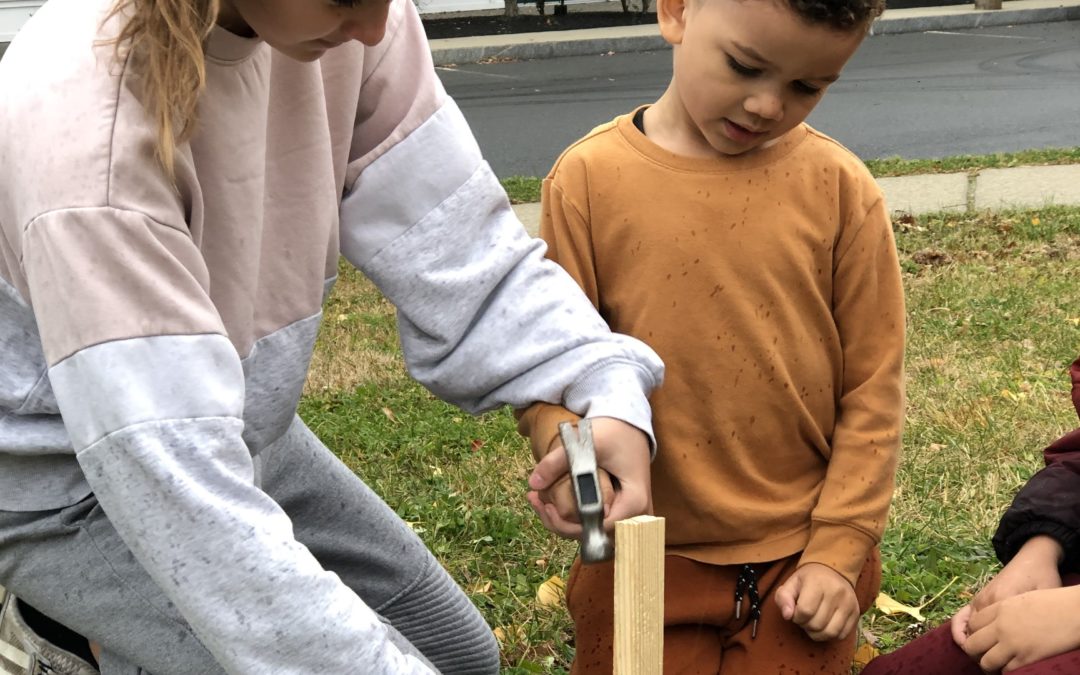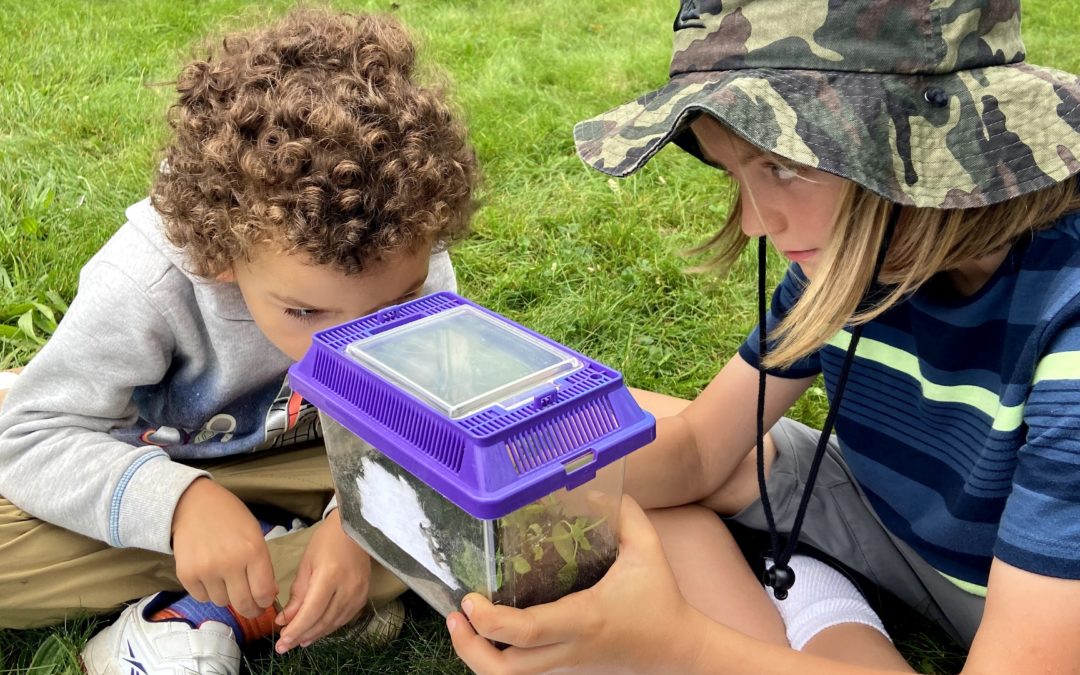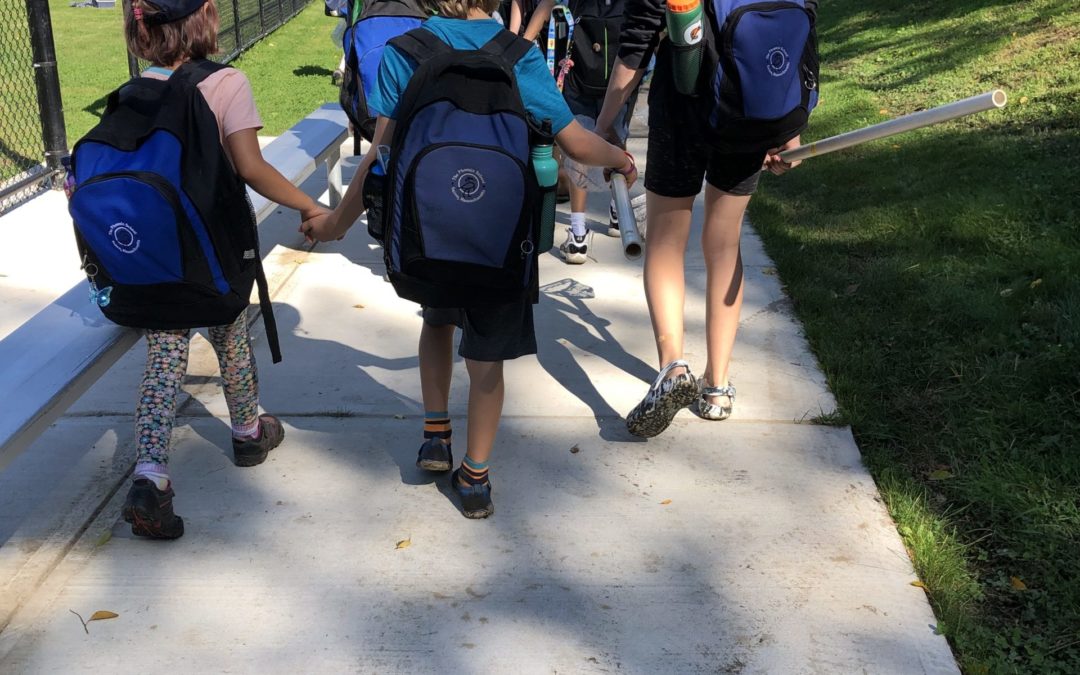
by Mistral Dodson | May 6, 2023 | Blog
As adults, we often think of leadership and collaboration as skills that are developed in the workplace or through formal training. However, the truth is that these skills can be nurtured from a very young age. In fact, they often begin in kindergarten.
In a K-8 schoolroom, five-year-olds are eager to find a role for themselves. They start with small steps, such as helping each other find items in the classroom or working together to complete a puzzle. These seemingly insignificant interactions may seem insignificant, but they are laying the foundation for essential skills like leadership and collaboration.
As students progress through the grades, they are given more opportunities to develop these skills. In the third to fifth grades, they become “packing partners,” responsible for a younger partner at the beginning and end of the day. They may also be reading partners or leaders of project learning teams.
By the upper grades, students are expected to take on more significant leadership roles. They become team leaders, teachers of after-school courses, and coordinators of all-school teams for projects like Revels or problem-solving initiatives. By the time they reach eighth grade, they are the leaders of the school and represent it in the local community.
This approach to developing leadership and collaboration skills is very different from the traditional one-day-a-week “Reading Buddies” program. Instead of a limited opportunity to work together, students are given consistent opportunities to learn and grow together throughout their academic careers.
By starting early and providing ongoing opportunities for leadership and collaboration, schools can help students develop essential skills that will benefit them for the rest of their lives. These skills will not only help them in the workplace but also in their personal relationships and in making a positive impact on their communities.

by Mistral Dodson | May 3, 2023 | Blog
As adults, we often think of leadership and collaboration as skills that are developed in the workplace or through formal training. However, the truth is that these skills can be nurtured from a very young age. In fact, they often begin in kindergarten.
In a K-8 schoolroom, five-year-olds are eager to find a role for themselves. They start with small steps, such as helping each other find items in the classroom or working together to complete a puzzle. These seemingly insignificant interactions may seem insignificant, but they are laying the foundation for essential skills like leadership and collaboration.
As students progress through the grades, they are given more opportunities to develop these skills. In the third to fifth grades, they become “packing partners,” responsible for a younger partner at the beginning and end of the day. They may also be reading partners or leaders of project learning teams.
By the upper grades, students are expected to take on more significant leadership roles. They become team leaders, teachers of after-school courses, and coordinators of all-school teams for projects like Revels or problem-solving initiatives. By the time they reach eighth grade, they are the leaders of the school and represent it in the local community.
This approach to developing leadership and collaboration skills is very different from the traditional one-day-a-week “Reading Buddies” program. Instead of a limited opportunity to work together, students are given consistent opportunities to learn and grow together throughout their academic careers.
By starting early and providing ongoing opportunities for leadership and collaboration, schools can help students develop essential skills that will benefit them for the rest of their lives. These skills will not only help them in the workplace but also in their personal relationships and in making a positive impact on their communities.

by Mistral Dodson | May 1, 2023 | Blog, Social Emotional Learning
At The Phoenix School, we believe that education is not just about academic achievement but also about personal growth and development. Our goal is to create an environment where students can flourish both academically and socially, and where they are prepared to succeed in life beyond the classroom.
One of the ways we achieve this is through our emphasis on social-emotional learning (SEL), mindfulness, and character education. SEL is the process of acquiring the knowledge, attitudes, and skills necessary to understand and manage emotions, set and achieve positive goals, feel and show empathy for others, establish and maintain positive relationships, and make responsible decisions.
Unlike many schools where SEL is taught as a separate program or class, we embed it into our everyday practices at The Phoenix School. Our flexible learning environment allows for “in the moment” learning, where students can seamlessly develop these essential skills through interaction with their multi-aged partners, peers, and teachers.
Our students are encouraged to communicate, collaborate, and work together to solve problems, develop critical thinking skills, and understand the importance of empathy and teamwork. By providing a supportive learning environment where everyone feels valued and respected, our students are equipped with the necessary social-emotional skills to succeed in life beyond the classroom.
Our experienced teachers use a variety of strategies to promote SEL development in our students. They work closely with students to create a safe and supportive learning environment where students can express themselves and explore their emotions.
We believe that developing these social-emotional skills is essential for success not just in school but also in personal and professional life. Our students leave The Phoenix School with a strong foundation in empathy, critical thinking, and problem-solving, which are all essential skills for success in the 21st century.
If you are looking for an educational environment that prioritizes personal growth and development, we invite you to learn more about our social-emotional learning program by visiting our website or scheduling a tour. Thank you for considering The Phoenix School as a potential option for your child’s education.



